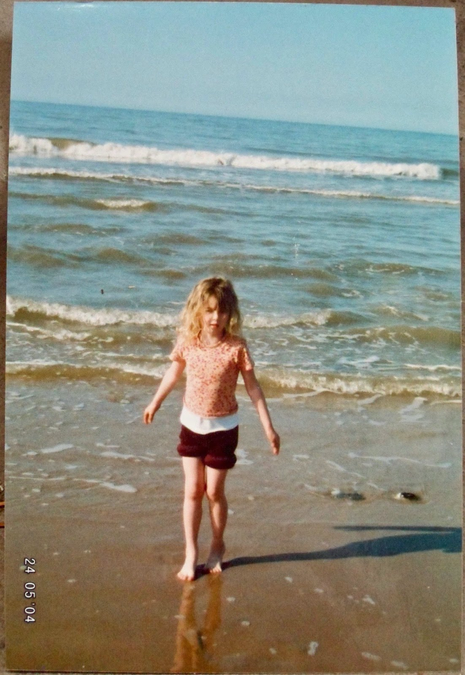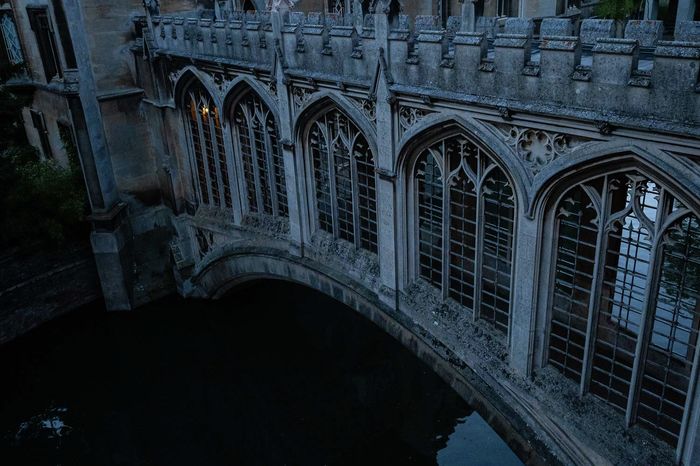A Stay-cation
Charley Barnard remembers her childhood family vacations near home in Norfolk.

With lockdown finally easing, those around me seem to be lamenting a summer spent stay-cationing in the UK. But to me, spending any time abroad still feels like a huge privilege. Despite studying their languages, I had only been to France and Spain once each before starting my degree. My first trip to France was a brief, two-night stint before my A-Level speaking exam, sharing a double bed in an AirBnB with my best friend, Georgie. We made all the mistakes that first-time budget travellers do, exploring the city bleary-eyed after not sleeping at all on the €15 overnight coach from London Victoria to Bercy Seine, but I was still enchanted by it. I remember taking off my sunglasses for a photo on Pont Neuf and being blinded by the limestone reflecting the sunlight. I have lived there alone on my year abroad for nine months now, but it still feels like the city Georgie and I discovered together as teenagers.
Holidays overseas were unthinkable as a child, and really, why would we leave? I grew up in Norfolk, a county known for its flat fields that seamlessly meet the sea. We had no money, but every summer we went camping. Not the kind of camping you are imagining – fields of white caravans with matching awnings, with shower blocks, an electric hookup and a rectangular pitch for everyone – but real camping. In bell tents and domes, mattresses in commercial vans and the back of the car.
My family have been going to the same campsite for years. The rest of the time, the site is a working farm, but in the summer three fields are cleared for campers. Most of us go yearly, spending six, uninterrupted weeks there. My grandma tells me stories about a huge bonfire in the middle of the field around which campers would congregate. I know it as a higgledy-piggledy mess of tents and run-down caravans, each group organised around a central firepit. We would camp with around fifteen of my mum’s friends every summer. Our living was truly communal, sharing food, crafts supplies and childcare. Some adults would commute to work from the site every day, leaving their children in the care of friends and each other. They would return in the evening to a child covered in sand and sea-salt, beaming. I remember one summer I didn’t brush my hair for six weeks, we joked that I had gone feral.
"Stuck between four walls in lockdown, my mind takes me to that wall-less place. An open space of grass, sky and sea, the flat fields leading to a horizon miles away"
We would walk barefoot for fifteen minutes up ‘the track’ to use the toilets, shower or get water. Of course, there was no phone signal or electricity, unless you had a generator. The fields backed onto sandy dunes, which collapsed into beach, which ran into sea. If you woke up early enough, you’d see seals. If you stayed up late enough, you could walk on the beach and leave a sparkling light trail behind you as your footsteps disturbed bioluminescent creatures. I had my first kiss there, and every year I would make a circus troupe of friends that I swore to keep in touch with but in the end never did.
On the best days, our parents would give us all a pound and we’d walk 20 minutes through the dunes to the neighbouring “Posh Camp”. We had a war with the children there, who’d shout names at us scruffy kids as we walked through to the camp shop to buy sweets. Really, it wasn’t posh at all, it catered to a different section of the working class. They just mowed the grass and had set pitches, delineated by white chalk lines and served with electricity boxes. We’d spend our pounds on toys and treats and sit on the playground, enjoying our treasure. Every chocolate bar tasted like a prize won for the path we’d walked, the camp we’d infiltrated.
Around fifteen, I fell out of love with the place. I began to see what I hadn’t noticed as a child: parental neglect from camp-groups around ours, a culture of drug-taking and partying at the expense of children’s welfare. I’m not sure if I simply never noticed this side to it as a child, or if it got worse over time. I eventually stopped going.
You could only find this place if you knew about it. Others have written about it, anonymously, keeping the location a secret. In the camp Facebook group, I see that it’s opening this year with stringent rules. I haven’t been back for years, but stuck between four walls in lockdown, my mind takes me to that wall-less place. An open space of grass, sky and sea, the flat fields leading to a horizon miles away. I imagine taking my middle-class partner and camping with my family friends. I imagine my worlds colliding, my twenty-two-year-old self meeting my eight-year-old self on those sandy dunes. I dream of woodsmoke and campfire cooking and a sepia-toned summer I’ll never experience again.
 News / Cambridge academics stand out in King’s 2026 Honours List2 January 2026
News / Cambridge academics stand out in King’s 2026 Honours List2 January 2026 Interviews / You don’t need to peak at Cambridge, says Robin Harding31 December 2025
Interviews / You don’t need to peak at Cambridge, says Robin Harding31 December 2025 Comment / What happened to men at Cambridge?31 December 2025
Comment / What happened to men at Cambridge?31 December 2025 News / AstraZeneca sues for £32 million over faulty construction at Cambridge Campus31 December 2025
News / AstraZeneca sues for £32 million over faulty construction at Cambridge Campus31 December 2025 Features / “It’s a momentary expression of rage”: reforming democracy from Cambridge4 January 2026
Features / “It’s a momentary expression of rage”: reforming democracy from Cambridge4 January 2026










